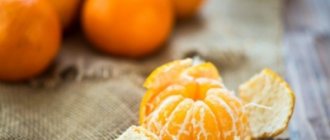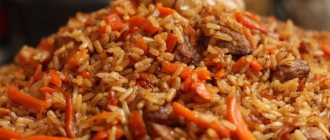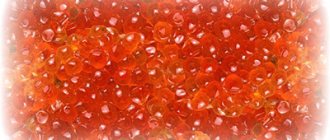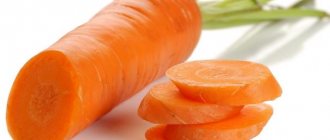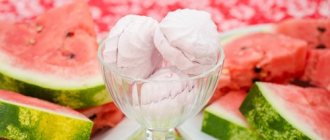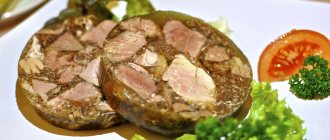Can a nursing mother use the product?
It is not difficult to guess that every second inhabitant of the planet has heard a lot about the properties of poppy. Yes, it actually contains substances such as codeine and morphine, which are very harmful to the nutrition of an infant.
Of course, poppy seeds, which are used for cooking, contain a minimal dosage of harmful substances, but their content does not completely exclude them. Therefore, not every product that contains poppy seeds can be consumed by a nursing mother without fear.
From what month?
In the first two to three months after birth and during lactation, doctors strongly recommend completely abstaining from baking. It is there that, according to statistics, poppy is found much more often. However, over time, you can and should add some foods to your diet.
It is strictly NOT recommended to consume poppy seeds during the first month of breastfeeding. Moreover, it is better not to add poppy seeds to food until the child is three months old. In this case, drying with poppy seeds is an ideal option for gradually introducing the product.
To begin with, you should try a small portion of poppy seeds, very tiny, on the tip of your finger. Carefully monitor the child’s reaction: there are no digestive disorders, redness or itching on the skin. If such manifestations occur, stop eating this product.
Useful properties for women
Despite the above-mentioned disadvantages of poppy, it is still useful, especially for a mother’s tired and overloaded body. Poppy has many properties, but the main ones are:
- poppy improves digestion and intestinal function;
- although it is weak, it is an analgesic;
- perfectly relaxes the body from overload;
- improves condition and increases tone;
- restores sleep patterns.
Poppy seeds have an anthelmintic, soothing, antitussive and strengthening effect.
They are prescribed for insomnia, nervous disorders and other gastrointestinal diseases. Poppy also contains a large amount of vitamins:
- Vitamin E (tocopherol) – promotes rapid tissue regeneration (content per 100 grams – 2.1 mg).
- Vitamin PP – controls heart function, normalizes blood circulation (content per 100 grams – 2.9 mg).
- Potassium – stimulates the functioning of the brain system (content per 100 grams – 587 mg).
- Sodium – forms the correct water metabolism of the body (content per 100 grams – 19 mg).
- Calcium – strengthens the bone skeleton (content per 100 grams – 1667 mg).
- Magnesium – ensures good blood clotting (content per 100 grams – 442 mg).
- Iron – improves blood condition (content per 100 grams – 10 mg).
- Sulfur – restores hair and nail growth (content per 100 grams – 640 mg).
- Cobalt – normalizes liver function (content per 100 grams - 18 mcg).
- Copper – increases the level of immunity (content per 100 grams – 1.8 mg).
- Zinc – increases the level of memory development (content per 100 grams – 7 mcg).
The benefits and harms of poppy seeds during breastfeeding
Before making a final decision about whether this product is for breastfeeding or not, you need to find out how it can be harmful and useful for nursing mothers and infants. The composition of the seeds is very rich:
- Vitamins (E, PP).
- Minerals (iron, zinc, copper, cobalt, magnesium, calcium).
- Cellulose.
- Fatty acid.
At the same time, all valuable microelements are easily absorbed. And there is even more calcium here than in dairy products.
Regular consumption of poppy seeds has many benefits:
- Improves good sleep in case of insomnia.
- The body feels a slight analgesic effect.
- The function of the gastrointestinal tract is normalized.
- Symptoms of chronic diarrhea are alleviated.
- Tension and fatigue disappear, the functioning of the nervous system returns to normal.
- Strengthens immunity and resistance to seasonal colds.
- Blood pressure is regulated, and the process of hematopoiesis is normalized.
- Metabolic processes are being improved.
- Increases bone strength.
- The condition of hair and nails improves.
- Hormonal levels return to normal faster after pregnancy and childbirth.
Thanks to these properties, poppy becomes a desirable product on the table of a nursing mother. The baby also benefits, since valuable vitamins and microelements pass into breast milk.
Despite its beneficial properties, under certain conditions, poppy seeds can cause harm to the body. Codeine and morphine, which are part of the seeds, also penetrate into mother's milk along with vitamins and minerals. With excessive use of poppy, doses of these narcotic substances can negatively affect the baby, causing depression of the nervous system and inhibiting the development of the child.
Consumption of poppy seeds stimulates the secretion of bile, so the product is contraindicated in case of cholelithiasis and other diseases associated with the gallbladder.
It is undesirable to eat poppy seeds if you have diseases of the liver and respiratory system, as negative consequences will not keep you waiting.
Poppy is also contraindicated for constipation, an ailment that often affects women after childbirth. Consuming the product will only worsen the situation.
Don't forget about individual intolerance. Poppy seeds are a product that rarely causes allergies, but an infant has not yet developed protective mechanisms, so even harmless products can cause a negative reaction.
Is it possible for a nursing mother to poppy? Experts do not prohibit the use of this product for breastfeeding, but you need to strictly monitor the dosage to avoid unpleasant consequences. Many women who eat baked goods with poppy seeds while breastfeeding note that if you follow the measure, nothing bad happens, and the baby feels great.
Is it allowed in baby food?
If your child does not show allergic reactions, then it is worth trying to introduce poppy seeds into his diet. This can only be done when you are one year old, not earlier!
First of all, observe the body's reaction to a new type of product. For the first time, 3-4 grams will be enough for the baby; if there are no pathological reactions, you can repeat the process.
Poppy is less beneficial for a baby than for a mother. The child's activity will increase slightly, but will be normal. The body will receive nutrients and many vitamins.
With beneficial properties, negative ones immediately appear.
- Skin diseases are possible - severe itching, allergic rash, urticaria, redness and even angioedema.
- Diseases and disorders of the gastrointestinal tract. An alarm signal can be diarrhea, frequent regurgitation, vomiting, constipation and gas.
- Respiratory diseases. Allergic runny nose and nasal congestion. Increased nasal discharge.
- Nervous system disorder. Increased activity.
- Disturbance in sleep and wakefulness. The mother herself can become a victim of these same symptoms if she is allergic or sensitive to a certain type of product.
Contraindications
Poppy contains dangerous components - morphine and codeine. When these substances enter the baby's body through mother's milk, they can disrupt the normal process of growth and development of the child. At the same time, the baby’s central nervous system is inhibited.
Poppy is contraindicated for women who suffer from cholelithiasis and other gallbladder pathologies. It is not recommended to eat poppy seeds for nursing mothers, who often experience constipation after childbirth. Poppy has a binding effect and enhances the painful condition.
The product is also contraindicated for children with tummy problems. Poppy can provoke stomach cramps and cause and worsen constipation. Experts recommend not consuming poppy seeds if your baby has a tendency to allergic reactions.
Recommendations for use during breastfeeding
Underweight girls are advised to use poppy during lactation. You should eat buns and flour products (bread, puff pastries, etc.) no earlier than six months after the baby is born.
Dryers with poppy powder are recommended to be consumed starting from the third month of a child’s life in limited quantities. Such stereotypes are shared only because of the amount of poppy contained in products. Dry products contain up to 5 grams, flour products contain up to 30 grams. It is safe in minimal quantities, but should not be overused.
The main precautions are:
- gradual introduction of poppy in limited doses;
- not abuse (no more than once a week);
- baby's reaction (make sure there is none).
Correctly introducing poppy seeds into your diet means introducing poppy seeds smoothly and slowly. There is no need to rush in this matter - haste can lead to disastrous consequences. Of course, this product has a lot of beneficial effects on the body, but if your baby didn’t like the product once (he immediately reacted), then you should repeat and introduce poppy into your diet no earlier than a few months later.
Chemical composition and positive properties of poppy seeds
Poppy has long been used in folk medicine as a remedy for various diseases. Experts explain the positive qualities of this product due to its balanced composition and large number of useful substances:
- First of all, it is worth highlighting the presence of vitamins E in poppy seeds, which help normalize the functioning of the immune system of a woman and her baby. Do not forget about the increased content of vitamin PP. This substance is necessary for the baby for the speedy development of the central nervous system and the blood vessel system.
- The special value of poppy is its truly unique set of microelements, many of which are very beneficial for a child’s health. Copper and sulfur promote proper protein metabolism, zinc and magnesium normalize the balance of essential hormones and improve the functioning of enzymes, cobalt and iron stimulate the activity of the hematopoietic organs, improve the functioning of the liver, and help saturate the body tissues of the mother and the little person with oxygen.
- The seeds of the plant contain twice as much protein and calcium as regular milk. At the same time, experts classify this product as high-calorie: proteins, fats and carbohydrates are in optimal proportions, the energy potential of 100 grams reaches 600 kcal. You can usually use poppy seeds while breastfeeding and even need it for underweight girls.
- Due to the fact that the grains of the plant include a large amount of starch and saturated fatty acids, poppy is successfully used to treat gastrointestinal diseases. The presence of coarse dietary fiber in this product helps a woman solve stool problems that often bother a nursing mother.
Traditional healers advise using medicines based on this plant in the following cases:
- Most often, poppy seeds are used to treat disorders of the digestive tract in patients. The substances included in its composition allow you to quickly cope with diarrhea, which helps reduce fluid loss by a woman. However, this property of the plant in question can provoke the development of constipation in mother and baby.
- The most popular in folk medicine are decoctions and infusions of poppy seeds. Most often, these drinks are used to stabilize the functioning of the central nervous system. They relieve nervous tension and fatigue, improve sleep, which is important for a nursing woman.
- Folk remedies based on poppy are used to treat diseases of the liver and biliary tract. In addition, experts note the good effect of this remedy in the fight against worms.
Why are confectionery products containing poppy harmful?
Despite all the positive qualities of the plant in question, doctors do not advise women in their care to include fresh baked goods with poppy seeds in their diet until the baby is 6 months old. They justify their recommendations with the following factors:
- Poppy seeds contain active substances - morphine and codeine. Of course, in plants that are grown specifically for the food industry, the dosage of these drugs is minimal. But even such doses can affect the baby. Morphine often causes disorders of the central nervous system, and codeine has a negative effect on the child’s digestive processes.
- Experts note that the ban on consuming poppy seeds during breastfeeding is also due to the fact that this product has high allergic activity, which is very dangerous for a newborn.
- Crackers with poppy seeds during breastfeeding can cause colic in the baby's stomach, bloating and increased gas formation. For a young mother, such a diet threatens to interfere with the frequency of bowel movements, and since women already suffer from constipation during lactation, such food can only aggravate the situation.
- In the first few months after the birth of a baby, doctors do not allow a nursing woman to eat fresh bread, pastries and confectionery. To avoid digestive problems for a woman and her child, experts recommend that patients include in their diet only pita bread without salt and spices, as well as wholemeal bread with bran.
Watch the video about nutrition while breastfeeding:
How to choose the right bread?
Pediatricians strongly recommend that nursing mothers eat homemade crackers, which are much safer for the child’s body than the store-bought version. To dry bread at home, you will need:
- 0.3 kg of bread;
- 1 m spoon of table salt.
Actions:
- First, we cut off the crusts on all sides of the bun, after which we cut the crumb into small cubes.
- Spread the resulting mass in an even layer on a baking dish and sprinkle with salt. You can place parchment paper on the bottom of the baking sheet.
- Place the workpiece in a hot oven.
- Dry for 15 minutes. at 180°.
During the first time of feeding a newborn, it is better to prepare crackers without adding salt.
It is advisable for nursing mothers to eat homemade bread products. Thus, a woman can be confident in the quality and composition of the product. When purchasing a store-bought version, you need to pay attention to the packaging, expiration date and composition, which should contain only natural ingredients.
bread products women always try to watch their food while breastfeeding, and rightly so. Many ingredients that are consumed daily can be harmful to your baby's health. You should pay attention to even the simplest components.
Bread is an integral part of any dish. This product has long been considered the main ingredient during meals. When times of famine came and there was not enough food, people baked bread to survive the cold winter. After all, even one crust of it could restore a person’s strength and satisfy hunger.
- white bread: prepared from grade 1 or 2 wheat flour;
- black bread: the recipe is based on rye flour or barley and oatmeal;
- Bran bread: contains many whole grains and is prepared with wholemeal flour;
- malt bread: contains malt in addition to flour.
And it can be served in the form of a regular slice, croutons, crackers, sandwiches. For a mother, when breastfeeding, it is simply impossible to completely exclude bread from the diet. It is the main component of every dish. But a nursing mother can choose the right variety so as not to harm the baby’s health and her waist.
It has long been no secret that bread with bran is the most healthy bread product. It contains cereals that enrich the body with iron and saturate it with vitamins. It is considered dietary and is filled only with beneficial properties. This type of bread is ideal for nursing mothers for frequent daily use.
Classic black bread is not far behind it. It also contains fewer calories but many beneficial vitamins. It is recommended to eat it in moderation when breastfeeding.
But white and malt must be consumed with caution. If you overdo it, a nursing mother can harm her baby. In addition, white bread increases the level of glucose, which does not have time to be absorbed in the body and begins to be deposited. Every time we eat buns and white bread, we risk gaining weight.
buns baking white bread Don't think that everything is so rosy. Each type also has negative properties that can harm the health of the baby and the mother herself, not to mention increased weight. Let's look at the main harmful aspects of this product:
- baked goods and buns contain vegetable fats, eggs, milk, which is several times the number of calories in the product and negatively affects the health of the nursing mother;
- 100 grams of white bread contains 230 calories, while black rye bread contains less - 190 grams; It must be taken into account that bakeries sell bread products according to an improved recipe, that is, they contain increased calories;
- 10% of people feel unpleasant discomfort after eating dark bread, that is, their body contains an insufficient amount of enzymes that should help break down complex carbohydrates; The same difficulties can arise in an infant, so it is better for mothers predisposed to such a disease to exclude the product from the diet or a specific variety of it.
We can conclude that the main harmful properties of bread relate to maintaining the mother’s weight. But the emotional and physical state of the baby also directly depends on this. If a nursing mother decides to ignore the condition of her figure while breastfeeding, she should pay attention that the deposition of fat in the body also negatively affects the composition of breast milk.
- The properties of this product may vary depending on the period of time that has passed since it was baked.
- Fresh white bread helps the body consolidate stool. If a nursing mother often suffers from constipation, it is better not to use it.
- Black, rye, bran and dried day-old white bread help stimulate digestion. It is advisable to use them in smaller quantities for those who are prone to diarrhea, microflora disorders, suffer from ulcers, gastritis or flatulence.
dark black bran bread It must be said that the healthiest and most delicious bread is the one that has been thoroughly baked. It is necessary to check it for the presence of raw dough. This is done quite simply, you need to squeeze the bread and look at its further condition. A well-baked finished product will return to its original shape, but with raw dough inside it will remain slightly compressed.
If black bread smells like buns or spices, it means it contains a lot of additives and improvers; such a product is not advisable to eat while breastfeeding. In addition to the increased level of calories, its additives can cause allergic reactions in the baby.
We suggest you read: Until what month of pregnancy can you exercise?
The inside of the bread should not have large pores. If it is noticeable that it is too light, it means that during preparation, substances were added to the dough that additionally activate the yeast. Do not forget that the surface of the bread should be the same color and tone. Only the top crust may be lightly toasted.
The main sign of freshness, of course, is the baking time. Always make sure that it is as fresh as possible, since when it sits on the shelves, bread in plastic packaging suffocates and gradually loses its beneficial properties.
